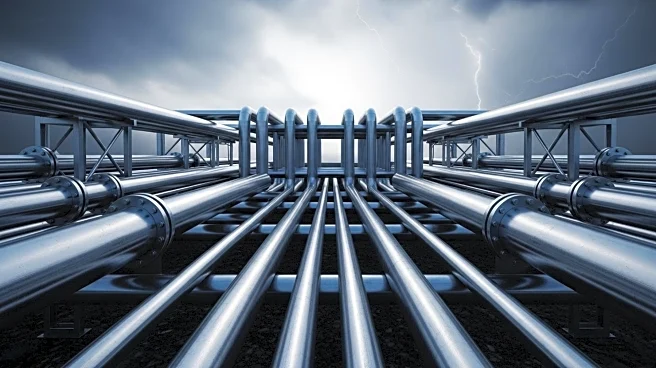What's Happening?
The Russian oil infrastructure is reportedly under significant strain due to ongoing Ukrainian attacks. According to industry sources, Transneft, Russia's oil pipeline monopoly, has restricted oil firms' ability to store oil in its pipeline system. This move comes as Ukrainian drone strikes have targeted critical export ports and refineries, reducing refining capacity by up to a fifth. The attacks have also damaged ports such as Ust-Luga and Primorsk. Ukrainian President Volodymyr Zelenskyy has emphasized that these attacks are effective sanctions against Russia's war economy, which heavily relies on oil and gas revenues. The European Commission is also planning to accelerate the phase-out of Russian fossil fuel imports, with new sanctions targeting Russia's war effort.
Why It's Important?
The disruption of Russia's oil infrastructure could have significant implications for the global energy market and Russia's economy. As Russia relies heavily on oil and gas revenues to finance its war efforts, the reduction in refining capacity and export capabilities could weaken its economic position. This situation also highlights the effectiveness of Ukraine's military strategy in targeting economic assets to pressure Russia. Additionally, the European Union's move to further reduce dependency on Russian energy could shift energy dynamics in Europe, potentially leading to increased energy prices and the search for alternative energy sources.
What's Next?
The ongoing conflict and targeted attacks on Russian oil infrastructure are likely to continue, with potential further disruptions to Russia's energy exports. The European Union's proposed sanctions could also intensify economic pressure on Russia. As the situation evolves, both Russia and Ukraine may adjust their strategies, with Russia possibly seeking alternative routes or methods to maintain its oil exports. The international community will be closely monitoring these developments, as they could have broader implications for global energy security and geopolitical stability.










